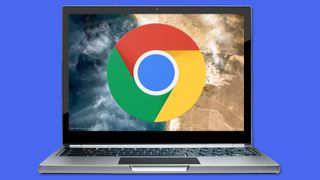Google Chrome will start blocking the most obnoxious ads on February 15
Ad nauseam

Surfing the web is about to become a much more pleasant experience for users of Google's Chrome browser, as Google just announced that its highly anticipated built-in ad blocker will launch on February 15, 2018, reports VentureBeat.
This doesn't apply to all ads: just the ones that make contemporary web browsing an occasionally maddening experience, as outlined by the Coalition for Better Ads. These include video-based ads that automatically start blaring audio, ads that hog the entire screen and ads that don't let you see the content without enduring a countdown.
We've known the feature was on the way for a good chunk of the year, but only now do we have an actual launch date. As Google originally stated, the long lead time was meant to give site owners and ad makers an opportunity to prepare for the feature rather than shutting shutting down the ads immediately. Site owners could also get an Ad Experience Report that let them know if their sites would be affected.
The greater good?
Ideally, content providers and users alike have reason to look forward to this feature. For users, it obviously gets rid of the annoyance of having your reading pleasure interrupted by something like an autoplaying video ad, which, among other things, screams that you're not properly focused on work to the rest of the office.
For content providers, it possibly means that fewer Chrome-based readers will continue resorting to using add-ons like AdBlock, which often wholesale blocks ads on a site. That means users are effectively getting the content for free, as no revenue goes back to the site for the visit.
Sites often don't have much direct control over which ads get displayed, so a feature like this on the world's most popular web browser will help automatically weed out the most obnoxious ads while leaving those that aren't so intrusive. There should always be something showing, although only the "good" ads will remain.
Given enough time, that possibly means obnoxious ads in general will become rare, as ad makers will realize their content isn't being seen. On several levels, unless you hate ads so much that the act of picking up a magazine leaves you reeling in horror, it's a win-win for everyone.
Get daily insight, inspiration and deals in your inbox
Get the hottest deals available in your inbox plus news, reviews, opinion, analysis and more from the TechRadar team.
The dangers of overreaching
As we mentioned in June, though, the concept isn't without its dangers. In the worst-case scenario, Google itself could effectively create a monopoly on ads (though that seems unlikely).
"What's more," we said at the time,"with Google the ultimate arbiter of good and bad ads, the search giant may be seen as wielding too much power – more so than it does now – in the online advertising game. "
The built-in ad blocker is only one feature that Google has planned for cleaning up the surfing experience. It's also planning on releasing a feature that will prevent you from automatically being redirected to a new website in "early 2018," which mean we can expect it around the same time the ad blocker launches.
Most Popular
